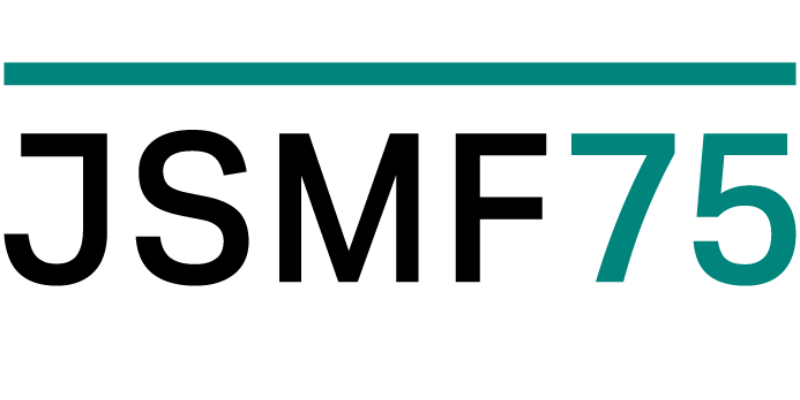Who We Are
History
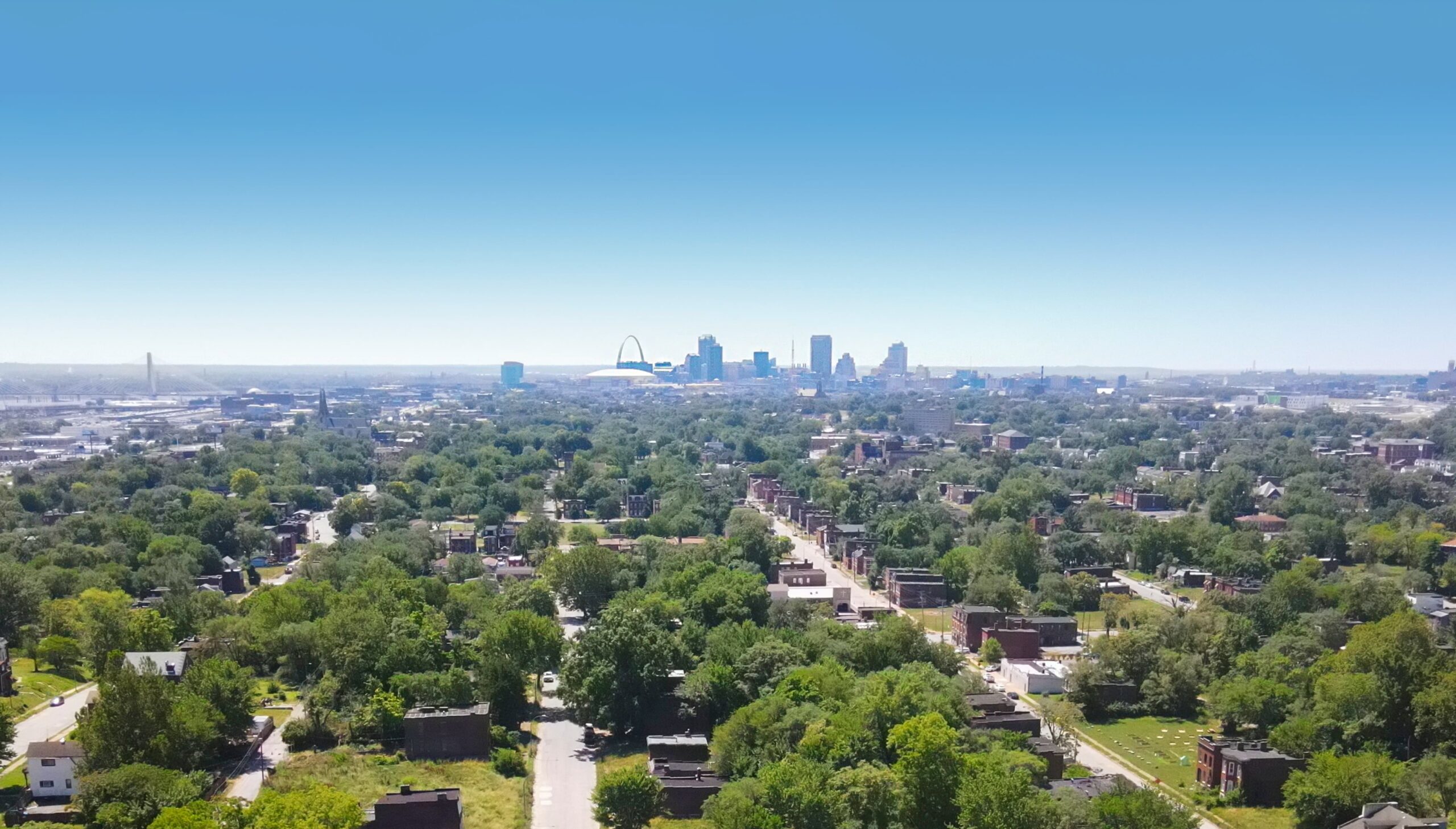
From Global Scientific Research to Local Economic Prosperity
At the James S. McDonnell Foundation, we believe that prosperity must be built — and shared — through strategic, long-term investment in people and ideas. Our mission is to improve economic mobility for St. Louisans facing the starkest disparities by supporting organizations and initiatives that create pathways to opportunity.
We take an evidence-based approach, investing in solutions with the potential for measurable impact. We support bold, innovative ideas that remove barriers to progress. We strive for humility and true partnership, recognizing that lasting change happens when we listen first and work alongside those closest to the challenges.
These values trace back to our namesake, James S. McDonnell (“Mr. Mac”), who built his company in St. Louis with a belief in rigorous research, a pioneering spirit, and a commitment to people. Today, JSMF applies that same mindset to our philanthropic work — advancing prosperity that works for St. Louis.
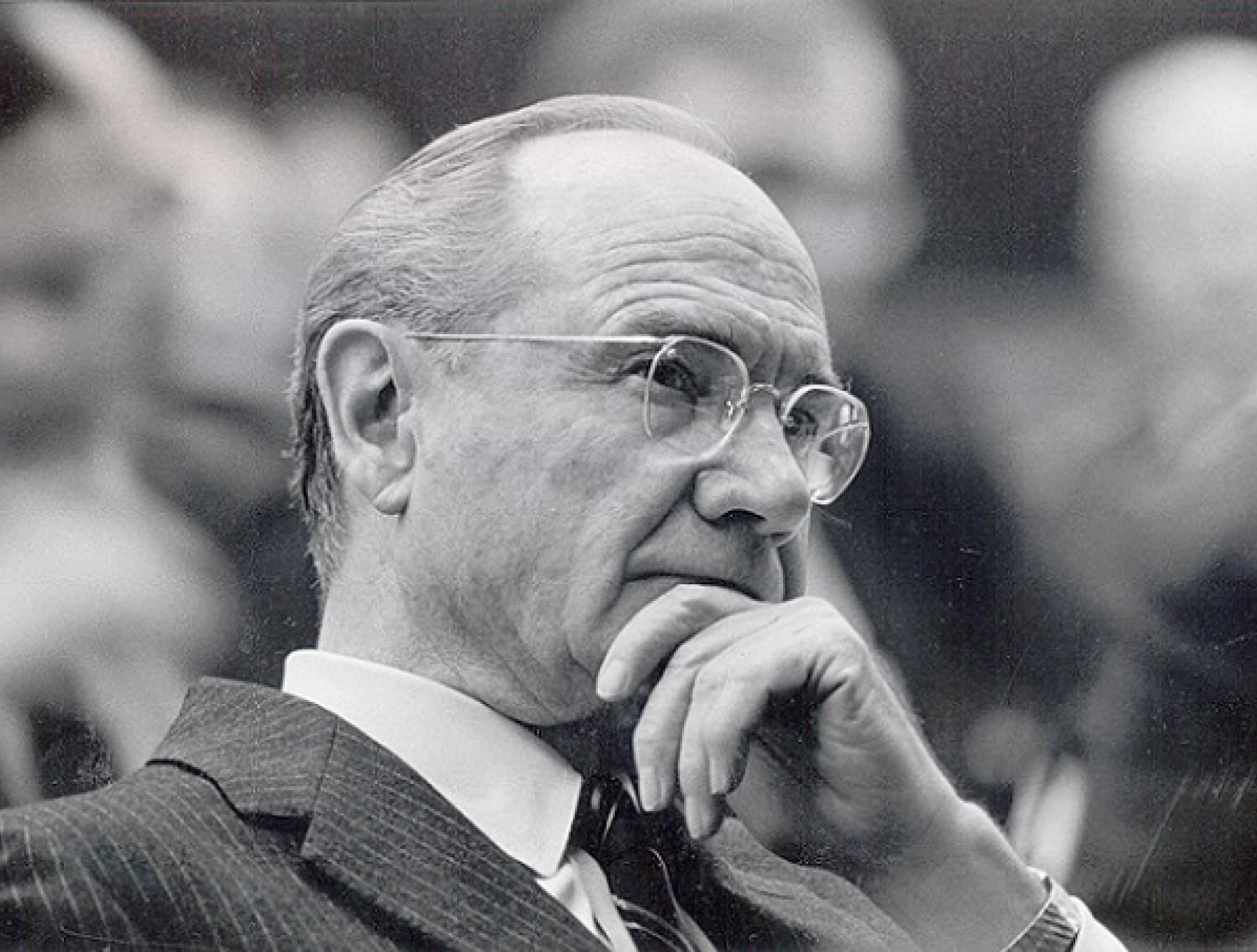
Our Founder
James S. McDonnell Jr. (1899-1980): Aviation and Aerospace Pioneer
James Smith McDonnell Jr., affectionately known as “Mr. Mac,” was a pioneering aerospace industrialist whose vision shaped twentieth-century aviation and space exploration. Born on April 9, 1899, in Denver, Colorado, and raised in central Arkansas, McDonnell developed an early passion for engineering and innovation. After graduating from Princeton University with honors in physics and earning a master’s degree in aeronautical engineering from MIT, McDonnell served briefly as an aviation cadet.
In 1939, McDonnell founded McDonnell Aircraft Corporation in St. Louis, strategically located in the American Midwest as war loomed. During World War II, the company produced airplane parts to support the war effort. After the war, McDonnell Aircraft became an innovator for the United States Armed Forces, notably developing the Navy’s first carrier-based jet fighter.
Under McDonnell’s leadership, the company also secured groundbreaking contracts in space exploration, becoming NASA’s contractor for the Mercury and Gemini spacecraft, marking America’s first steps into human spaceflight. A cherished keepsake from this era was astronaut John Glenn’s autograph describing himself as “a very satisfied customer.”
McDonnell Aircraft expanded into commercial aviation by merging with Douglas Aircraft in 1967, forming McDonnell Douglas Corporation and significantly contributing to the age of mass air travel with aircraft such as the DC-10.
Known for his ethical and collaborative leadership style, “Mr. Mac” introduced the innovative practice of calling employees “teammates” and advocated strongly for global peace, making McDonnell Aircraft the first U.S. company to recognize United Nations Day as a paid holiday. His commitment to global responsibility extended to philanthropy with the establishment of the James S. McDonnell Foundation in 1950, which became a major supporter of scientific research.
James S. McDonnell Jr. passed away on August 22, 1980, leaving an enduring legacy of innovation, leadership, and commitment to humanity’s advancement.
Birth of James S. McDonnell Jr.
Born in Denver, Colorado, four years before the Wright brothers’ historic first flight, James Smith McDonnell Jr. was raised in central Arkansas and would go on to shape the destinies of both the aviation industry and manned spaceflight.
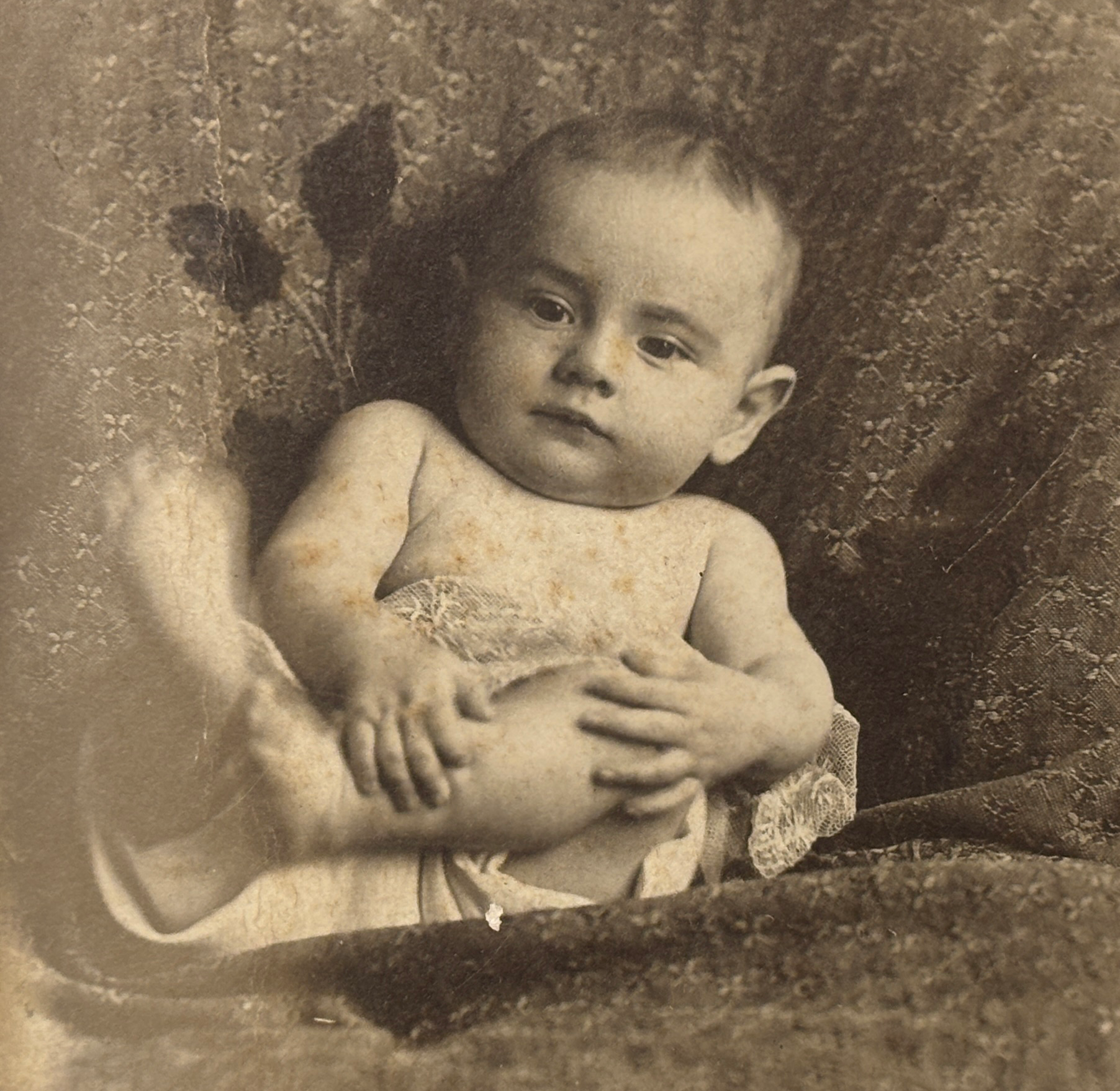
St. Louis World’s Fair
At age five, James spent a month at the St. Louis World’s Fair, exploring exhibits that showcased innovation and progress in technology, transportation, and culture from around the globe. This experience ignited his lifelong curiosity and broad worldview.
Photograph from the Missouri Historical Society.
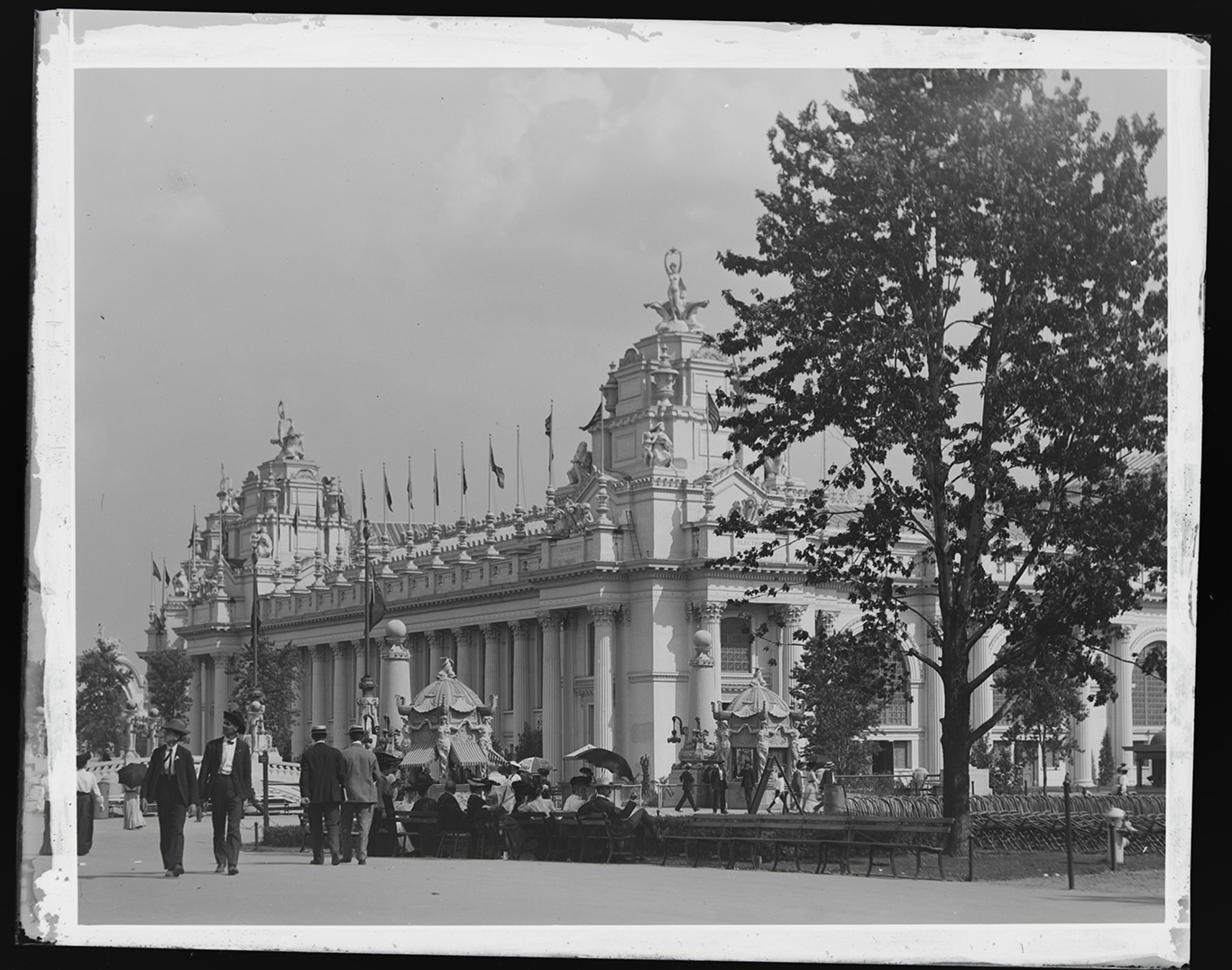
Education and Aviation Beginnings
After graduating from Princeton University with honors in physics, James pursued his passion for aviation at MIT, earning a master’s degree in aeronautical engineering.
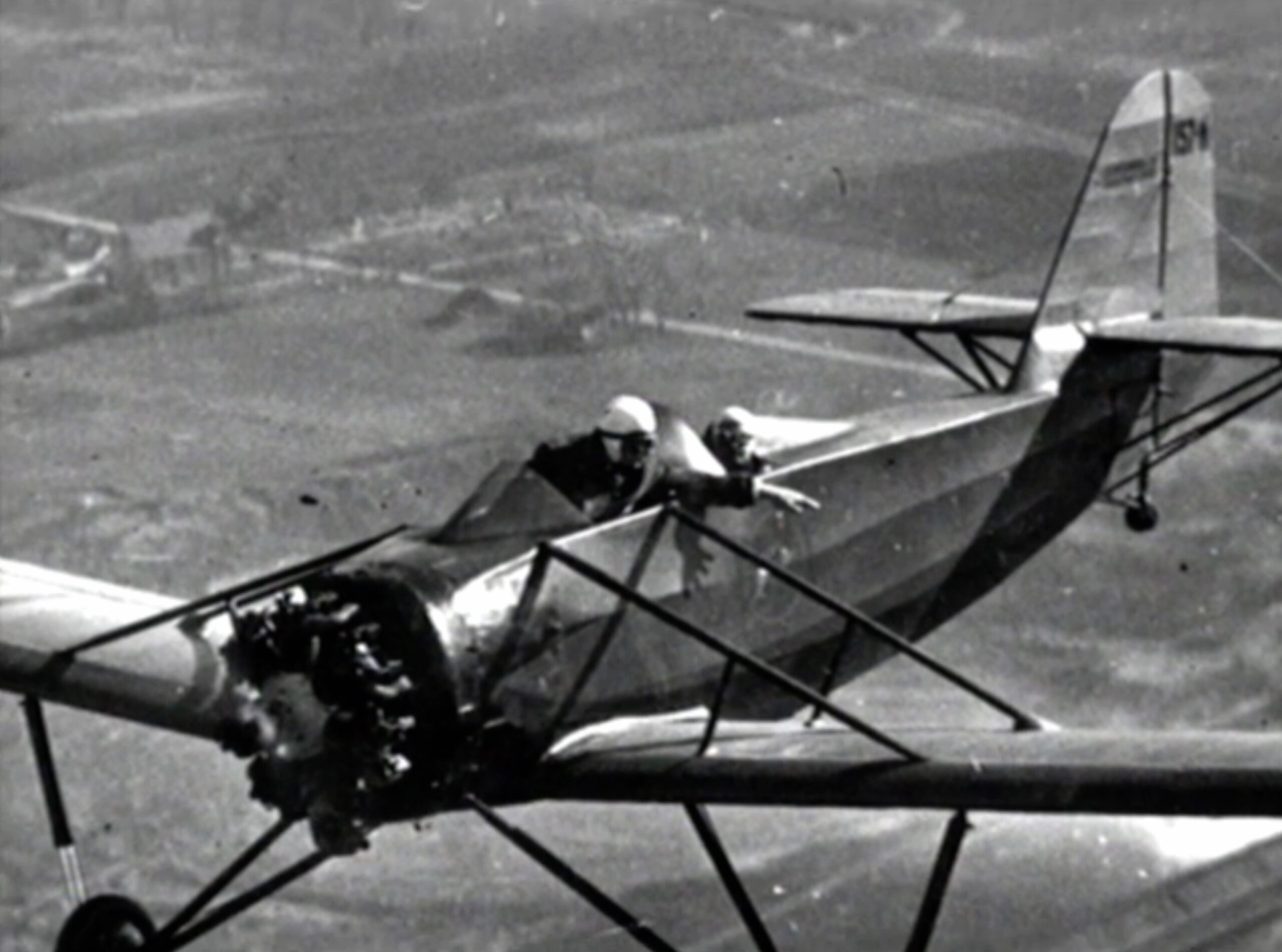
Courageously Testing the Parachute
As an aviation cadet and 2nd Lieutenant in the Army Air Service Reserve at Brooks Field in Texas, James volunteered as one of six individuals to test an early parachute design. He lay on the wing of an airplane as it took off and climbed to altitude. After initially struggling to release his grip on the wing, he succeeded on his second attempt and described the experience as “… such quiet, and mental isolation as never experienced on Earth — ecstasy.”
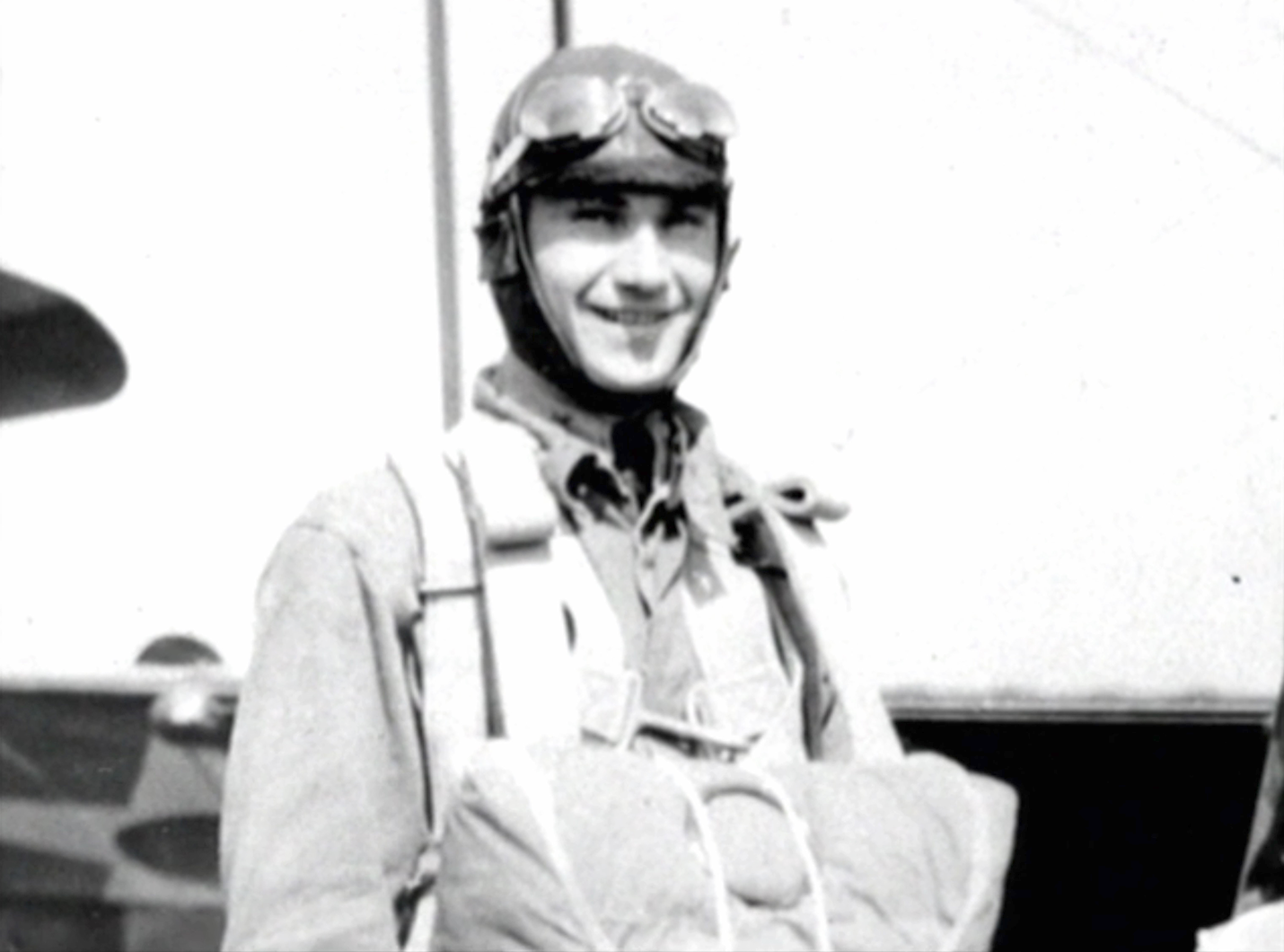
Founding McDonnell Aircraft Corporation
At age 40, James founded McDonnell Aircraft Corporation in St. Louis, Missouri, strategically choosing a central, secure location with an established aviation workforce and investor interest. It was at this time he became affectionately known as “Mr. Mac” by the employees he referred to as “teammates,” a practice that was then uncommon in business culture.
Photograph from the National Naval Aviation Museum.

Establishing the James S. McDonnell Foundation
Committed to improving quality of life and giving back beyond his “small self,” Mr. Mac established JSMF, investing in scientific research and community advancement.
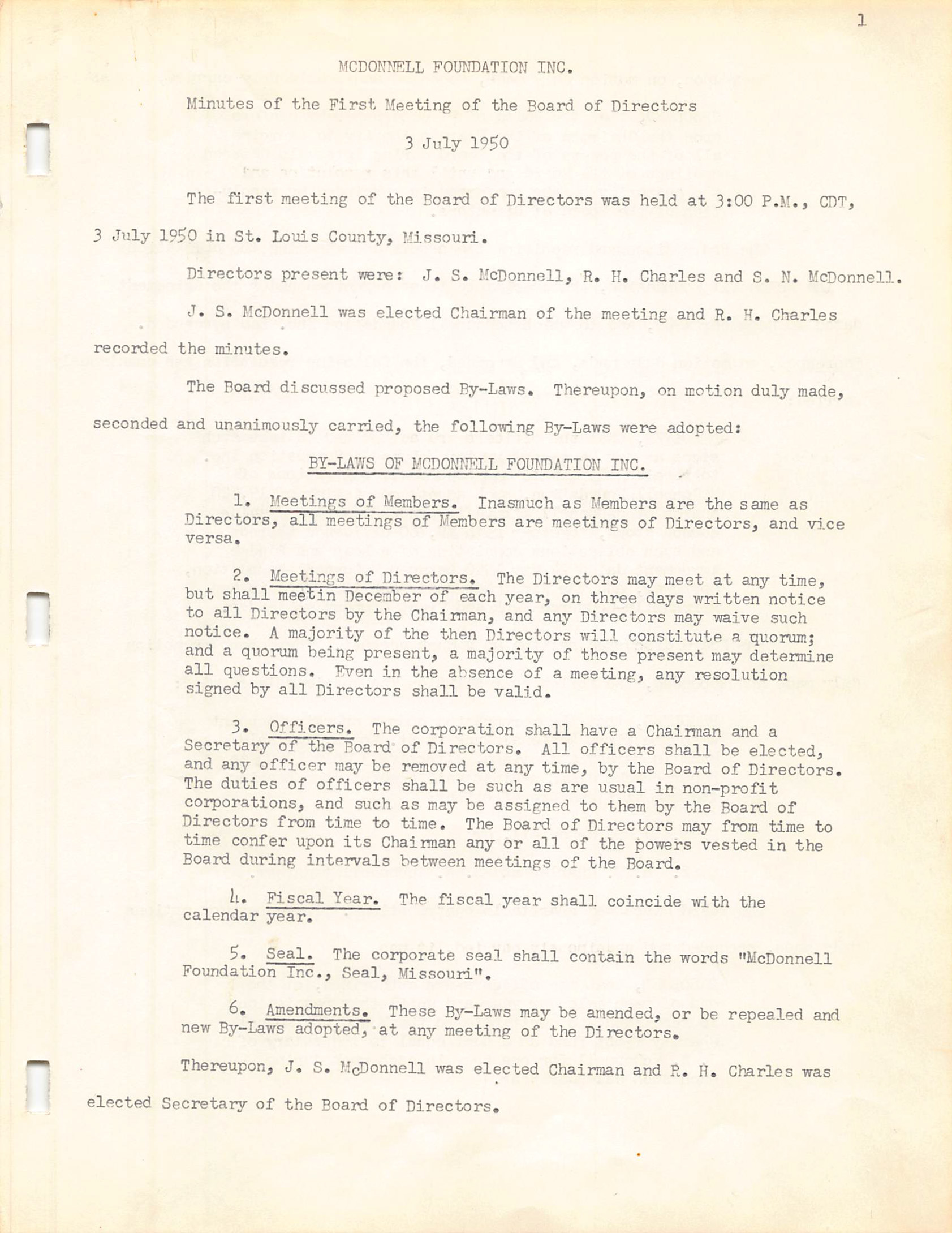
Ethical Leadership and Support for the United Nations
Mr. Mac authored the company’s nine-point Code of Ethics and became an advocate for peace and global cooperation as an early supporter of the United Nations, making McDonnell Aircraft the first American company to recognize UN Day as a paid holiday.
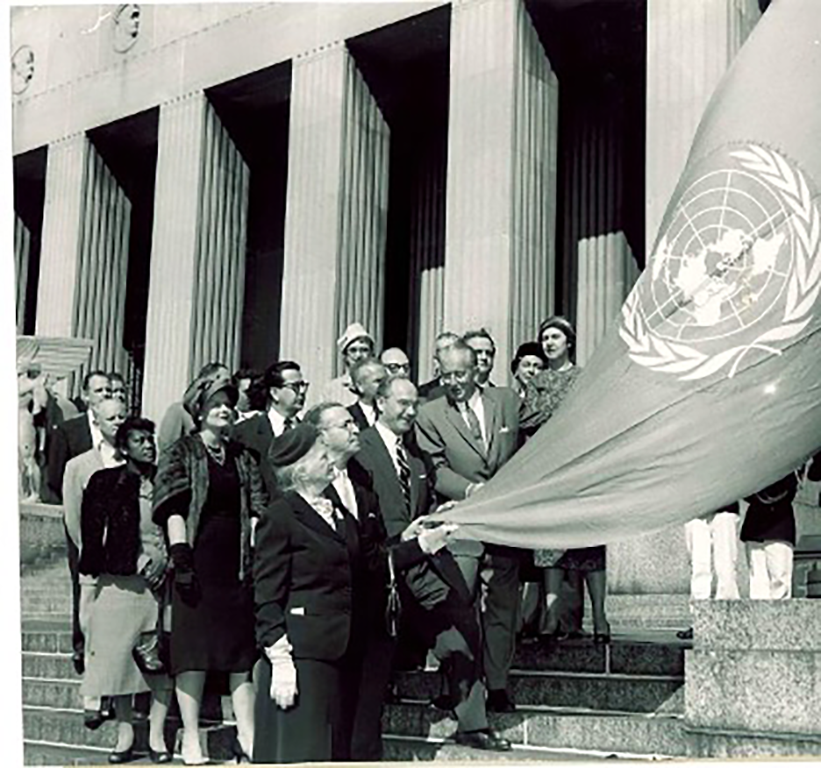
Entering the Space Age
Under Mr. Mac’s leadership, McDonnell Aircraft began developing America’s first spacecraft, the Mercury capsule, marking a significant expansion into aerospace innovation. One of his favorite keepsakes was an autograph from Mercury astronaut John Glenn, who described himself as “a very satisfied customer.”
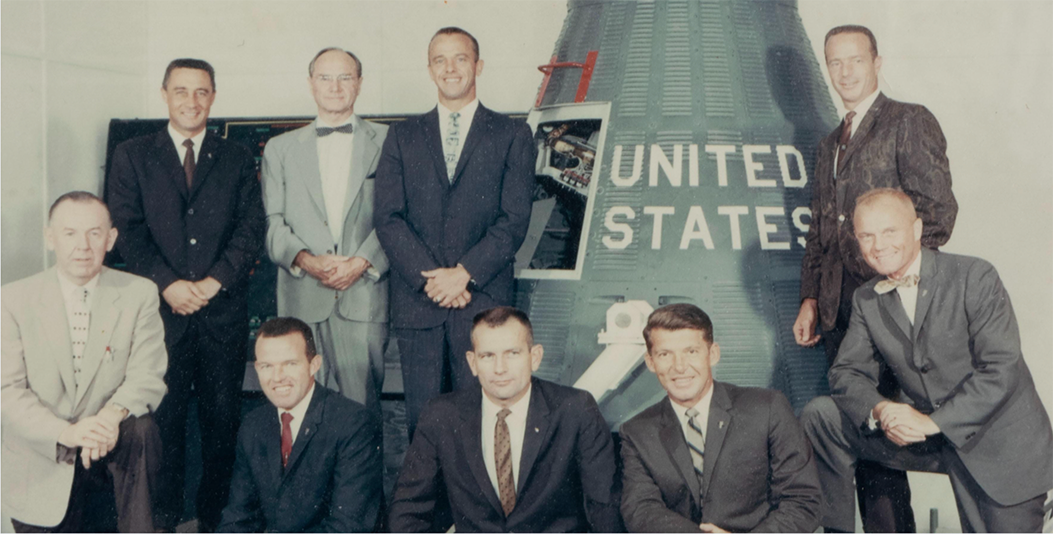
Commitment to Equal Opportunity
McDonnell Aircraft joined President John F. Kennedy’s voluntary equal opportunity employment initiative, “Plans for Progress,” emphasizing the company’s dedication to workplace diversity and fairness.
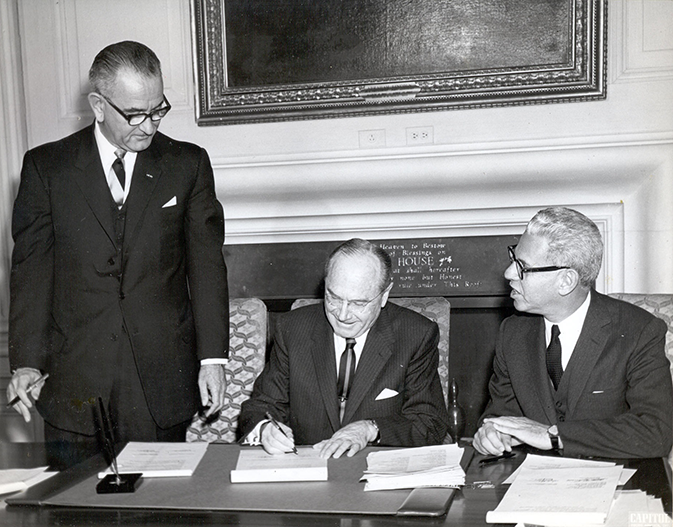
Friendship 7 Flight
Astronaut John Glenn became the first American to orbit Earth aboard Friendship 7, a Mercury spacecraft designed and built by McDonnell Aircraft.
Photograph from NASA.

Presidential Visit
President John F. Kennedy toured McDonnell Aircraft in St. Louis, highlighting the company’s key role in America’s space exploration efforts.
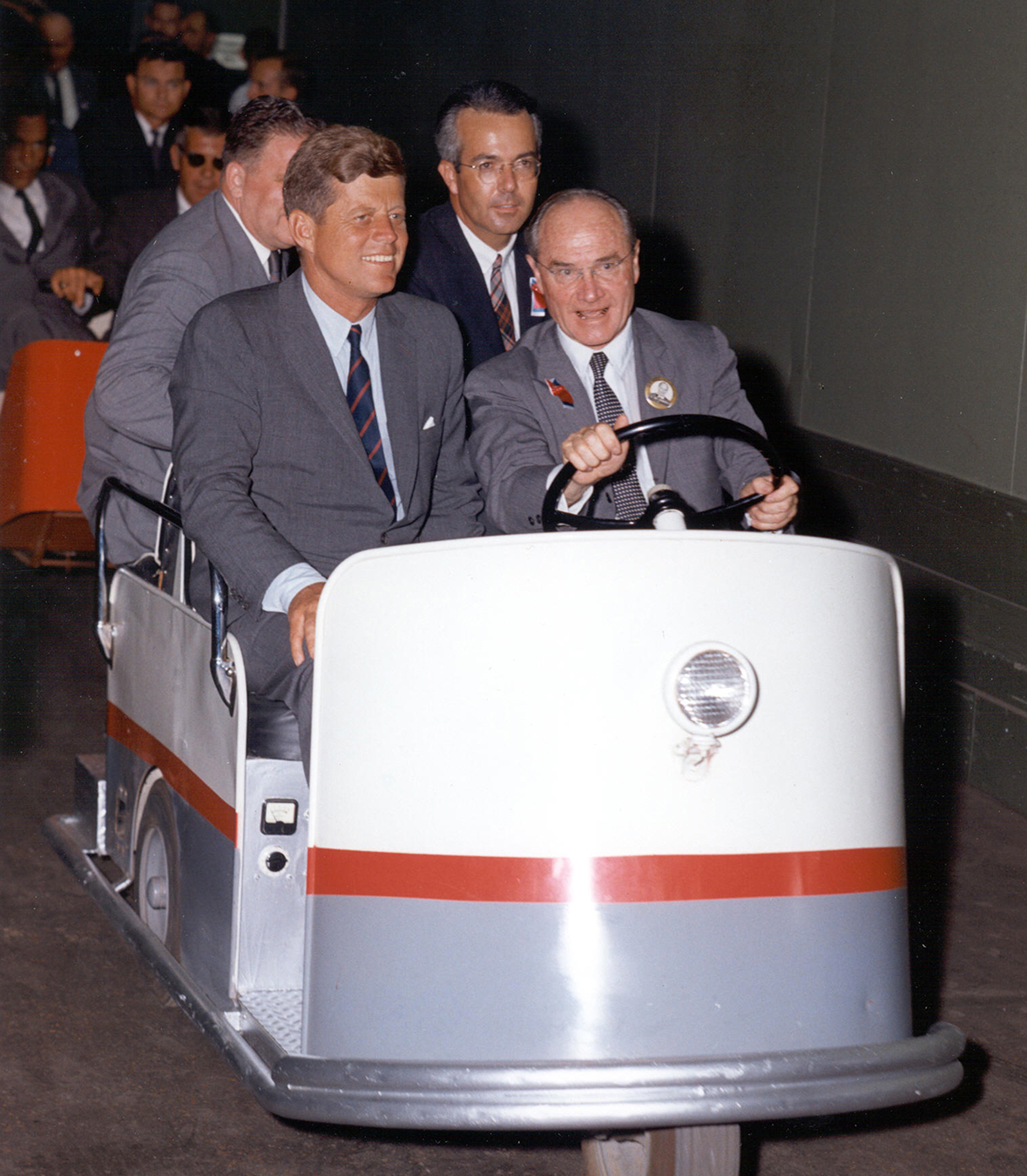
Merger and Commercial Aviation Milestone
McDonnell Aircraft merged with Douglas Aircraft to form McDonnell Douglas Corporation, significantly influencing the age of mass air travel. High-profile moments from this era included the DC-10 passenger jet rollout, attended by Vice President Spiro Agnew and California Governor Ronald Reagan.
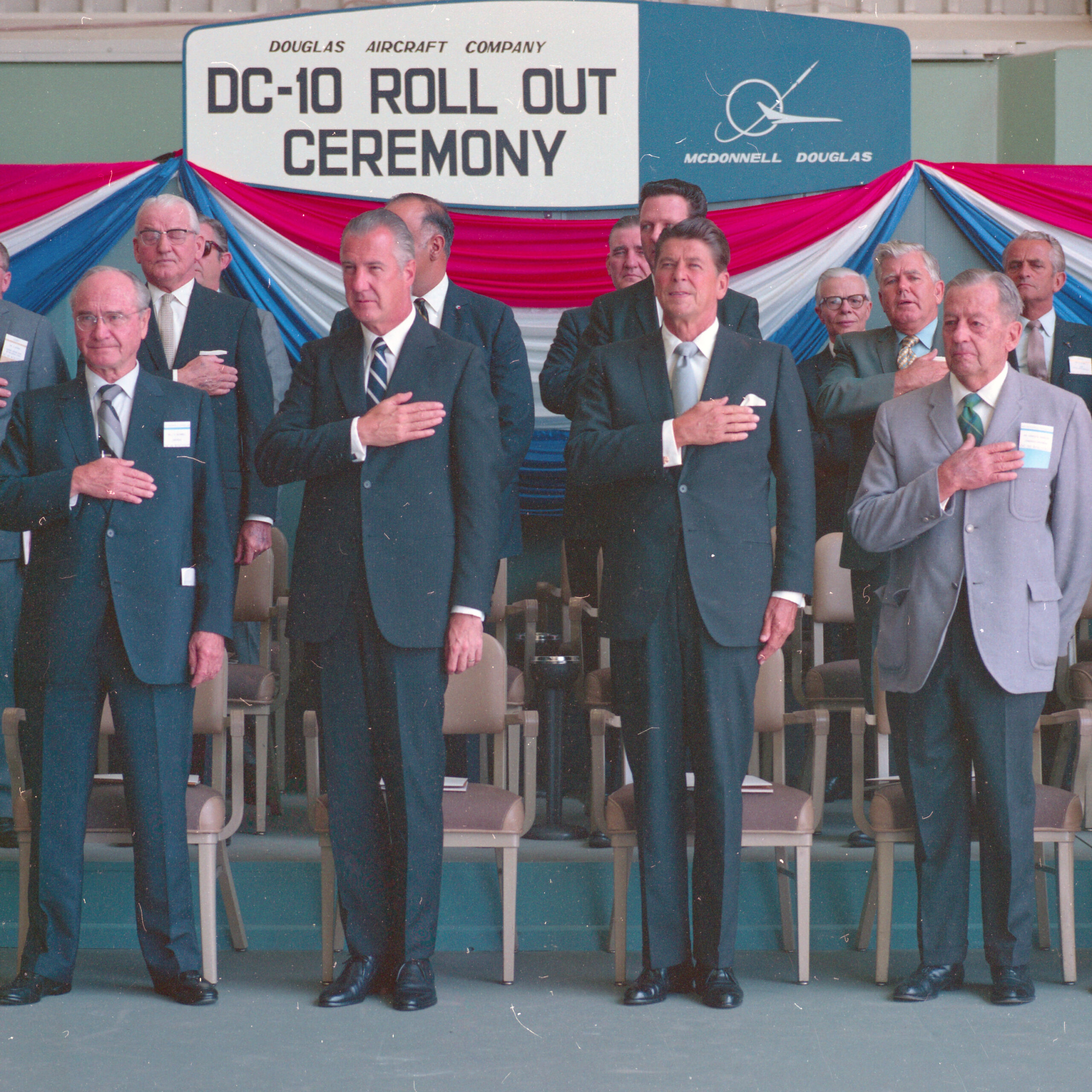
Passing the Torch
Mr. Mac passed away, leaving a legacy of innovation, ethical leadership, and global connectivity. Around this time, JSMF grew to have a full-time staff and focused on supporting global scientific research in memory of its founder.
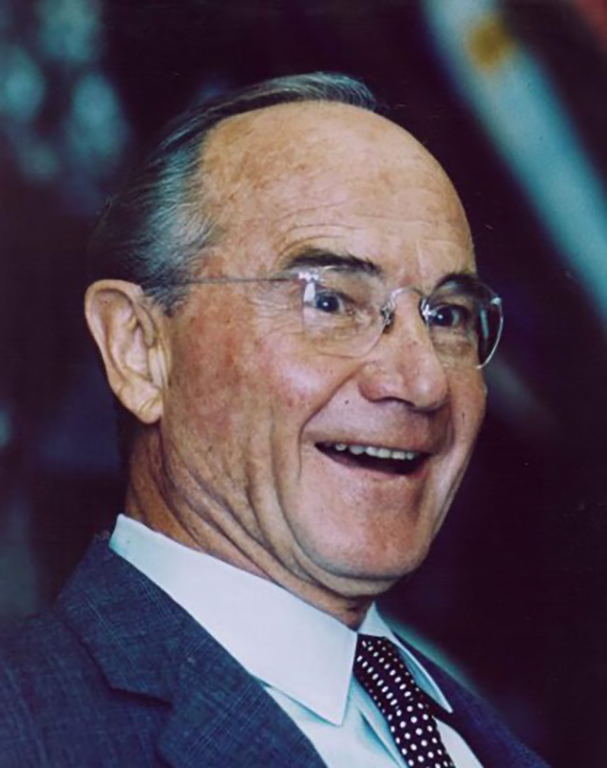
A Second Merger
McDonnell Douglas merged with Boeing, which continues to operate significant facilities in St. Louis. Following the merger, which created the largest aircraft company at the time, James S. McDonnell’s son John F. McDonnell served on the board of Boeing. He had worked in various engineering and then management positions since starting his career at McDonnell Aircraft Corporation in 1961.
Funding the Future of Science
JSMF awarded $1 million McDonnell Centennial Fellowships to 10 scientists in honor of what would have been Mr. Mac’s 100th birthday. Their research spanned five categories: astrophysics and cosmology, human genetics, global and complex systems, human cognition, and the history and philosophy of science.
The intent of the awards was to support young scientists whose work would contribute substantially to the development of knowledge and its responsible application in the century to come.
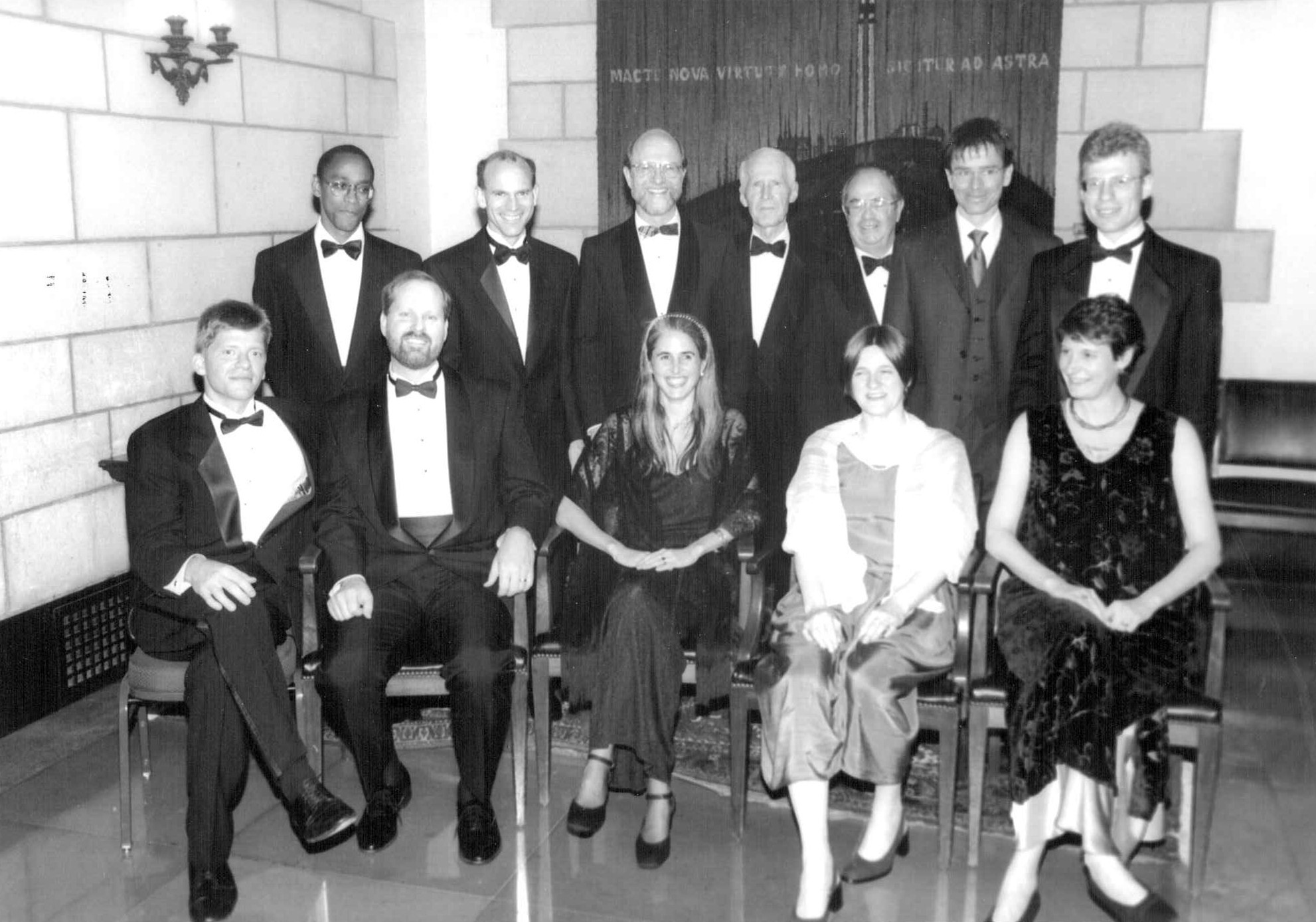
Focus on Philanthropy
John F. McDonnell retired as Chairman of Boeing after a distinguished career in aerospace. In the following years, he became deeply involved in philanthropy, supporting numerous initiatives through the James S. McDonnell Foundation and other charitable activities.
He served on the boards of various organizations, including Washington University in St. Louis, where he supported educational programs and research initiatives. John F. McDonnell also supported the establishment of the Cortex Innovation Community, fostering economic development and innovation in St. Louis.
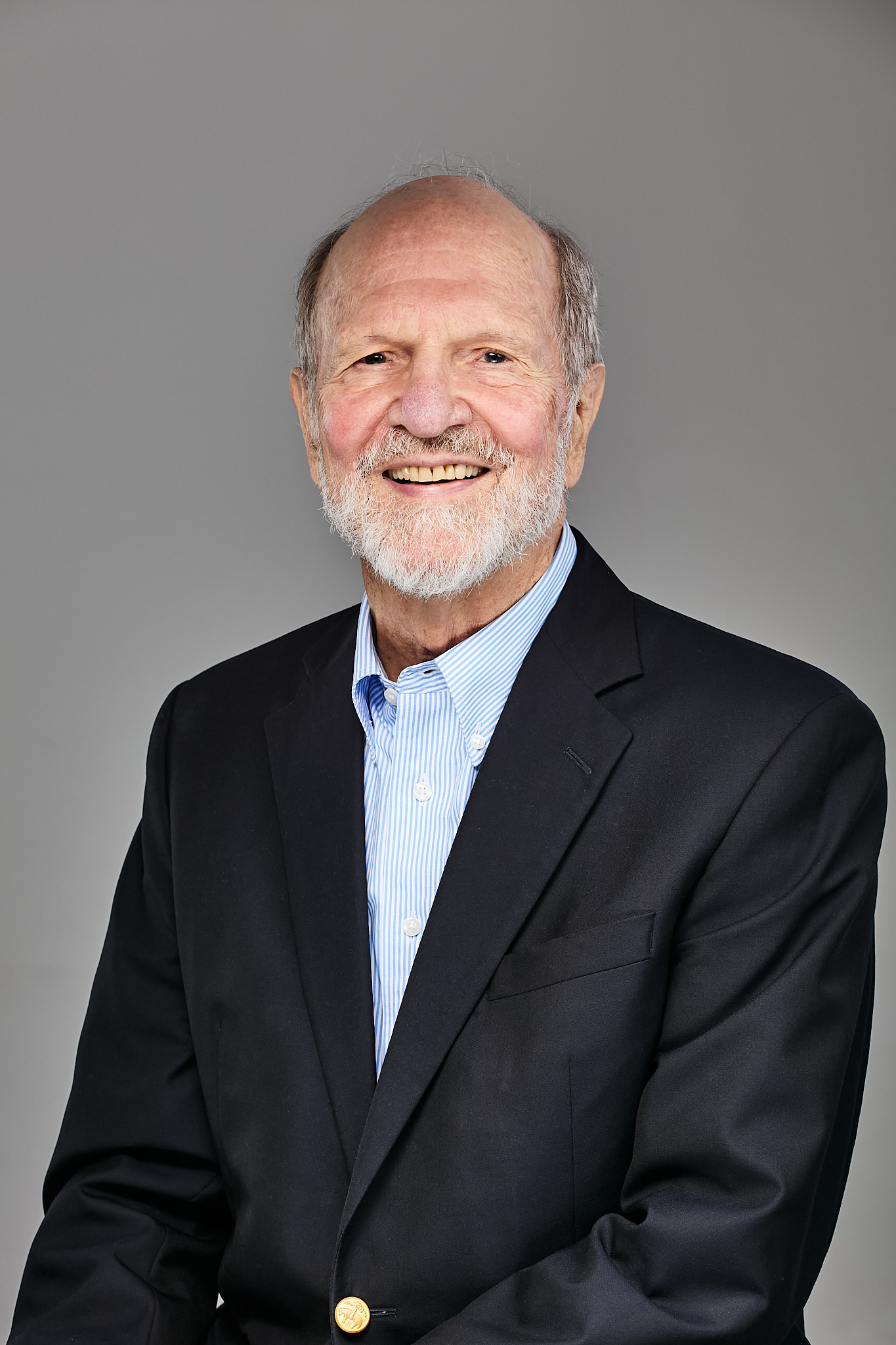
For the Sake of All Report Released
A research team led by Dr. Jason Purnell at Washington University, in collaboration with Saint Louis University, released For the Sake of All, a landmark report on the health and well-being of African Americans in St. Louis. The report demonstrated how racial and economic disparities negatively impact not just individuals but the entire region’s growth and prosperity. It outlined policy recommendations to improve health, education, economic opportunity, and neighborhood conditions — many of which continue to guide equity-focused efforts in St. Louis today.
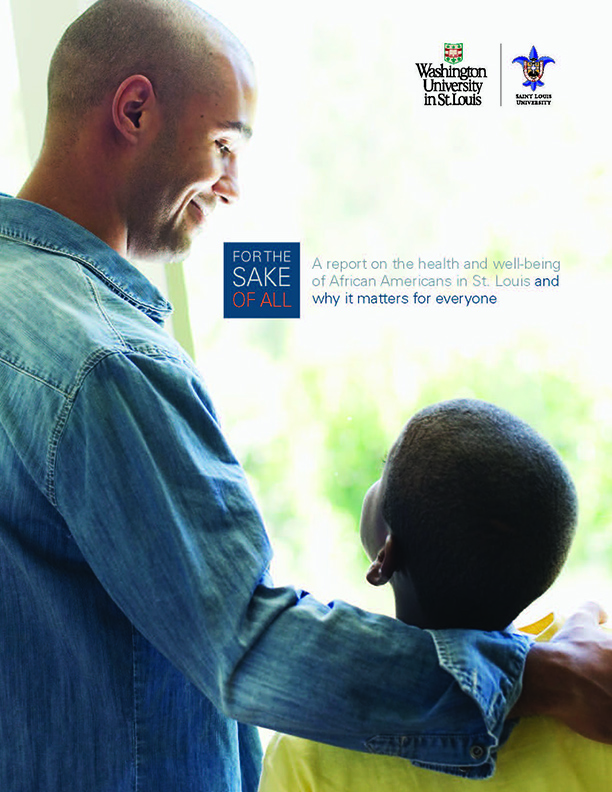
A New President and a New Mission
Dr. Jason Purnell, a respected leader in health equity and economic mobility, was named president of JSMF. Under his leadership, the Foundation refocused its mission on improving economic mobility in St. Louis by advancing efforts in workforce development, small business support, wealth-building, and civic infrastructure.
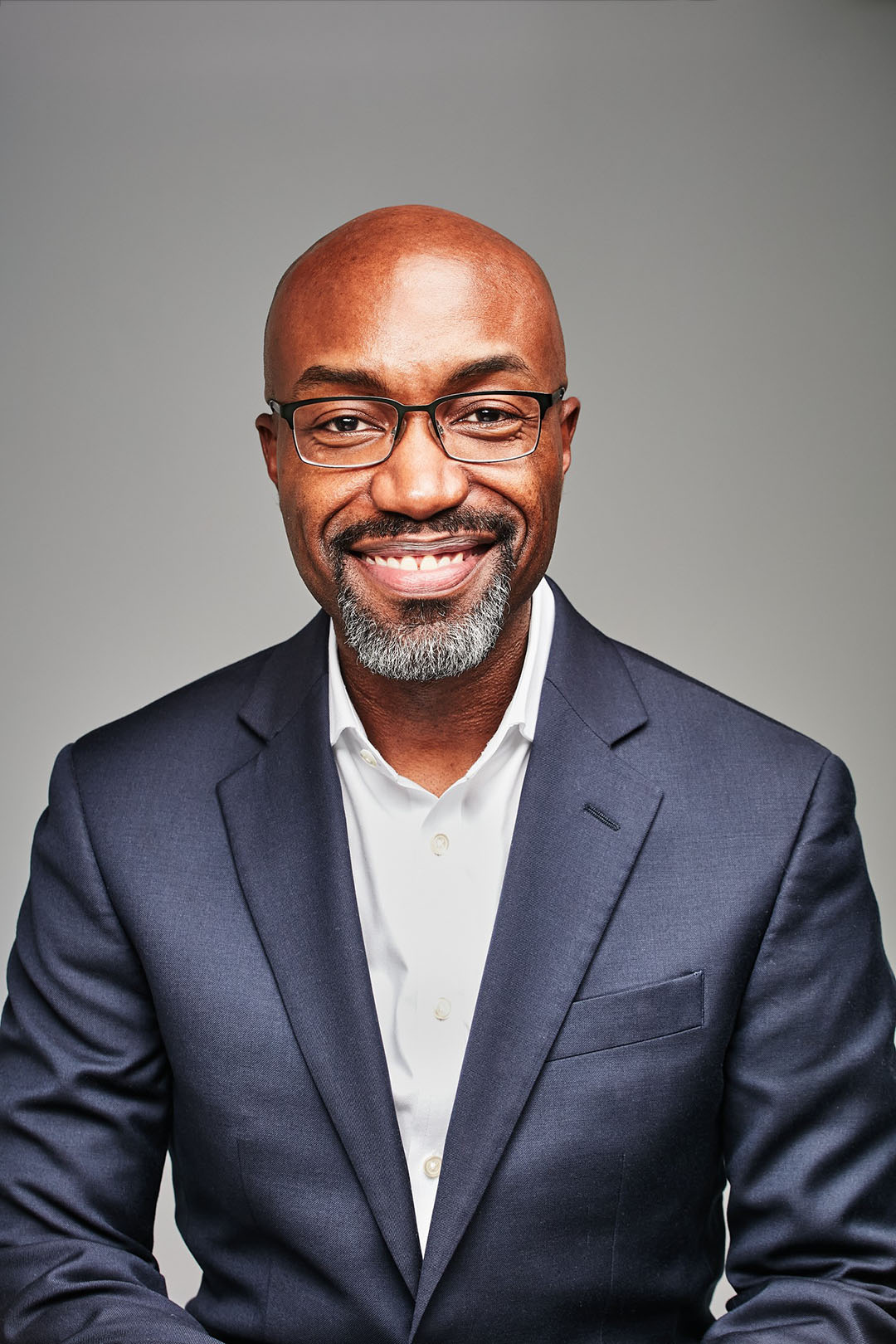
A Milestone in Giving
JSMF celebrated 75 years of philanthropic giving, with more than $600 million awarded since its founding.
